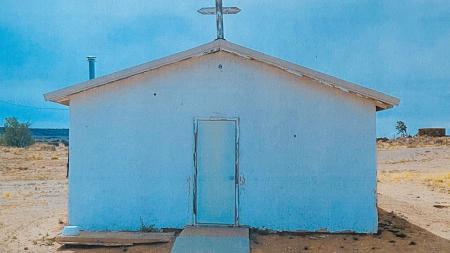Social Media and the CRC

Welcome to what may become a series, offered occasionally, of thoughts and perspectives from the executive director’s desk. Unlike The View from Here, my monthly contribution in The Banner’s Our Shared Ministry section, these articles will arise out of my sense of what is missing in our life of ministry together.
The beauty of our church polity is that the agenda, direction, and scope for our denomination’s ministries originate with congregations. Then, of course, each classis has a responsibility, and, finally, synod. I receive direction for my work—even specific instructions at times—from synod and synod’s interim governance body, the Council of Delegates. As I seek to faithfully respond to these directives, I sometimes also notice gaps or areas where we could improve in our desire to serve God. The purpose of this occasional column is to draw attention to some of those gaps and hopefully spark some conversation around them. The first item I would like to discuss has to do with social media.
The Christian Reformed Church in North America uses social media to communicate messages important for ministry. This happens through the CRCNA as a denomination, through its various ministries, and through local congregations. From the looks of things, many, many Christian Reformed individuals also use social media, some of whom engage directly with the social media posts and messages generated by CRCNA ministry employees.
The CRCNA has no official position statement on social media, but I would suggest that the use of social media—whether it is used to communicate only within the body of Christ or to those in the broader world—has ethical dimensions of great magnitude that relate directly to the Word of God.
For starters, social media is a form of communication. Scripture tells us that the form and content of our communication is of great significance. Colossians 4:5-6, for example, calls us to “be wise in the way you act toward outsiders; make the most of every opportunity. Let your conversation always be full of grace, seasoned with salt, to that you may know how to answer everyone.”
But unlike other forms of communication, social media has some unique aspects that make it particularly complicated. Digital communication on social media platforms is instantaneous, has global reach, and often depersonalizes those with whom we are communicating.
While I rarely use social media, I witness its use by CRC employees and congregation members. And I see words, assertions, and responses that are not in concert with Scripture—exchanges that lack grace and give way to derision and belittlement. I wonder if we ought to do more as a denomination to respond to this?
Consider just a few of the biblical texts that ought to guide our use of social media:
- Proverbs 29:11—“Fools give full vent to their rage, but the wise bring calm in the end.”
- Romans 12:10—“Be devoted to one another in love. Honor one another above yourselves.”
- Ephesians 4:25-27, 29—“Each of you must put off falsehood and speak truthfully to your neighbor, for we are all members of one body. ‘In your anger do not sin’: Do not let the sun go down while you are still angry, and do not give the devil a foothold. . . . Do not let any unwholesome talk come out of your mouths, but only what is helpful for building others up according to their needs, that it may benefit those who listen.”
- 1 Thessalonians 5:11—“Encourage one another and build each other up, just as in fact you are doing.”
- James 1:19—“My dear brothers and sisters, take note of this: Everyone should be quick to listen, slow to speak and slow to become angry, because human anger does not produce the righteousness that God desires.”
Just as synod has provided guidance about alcohol use and the film arts, about labor unions and worldly amusements, we could all be helped with synodical-level guidance related to social media, the results of which would enhance our discerning use of social media—both within the body of Christ and as we seek to let our light shine before others, that they may see our actions and glorify our Father in heaven (see Matt. 5:16).


